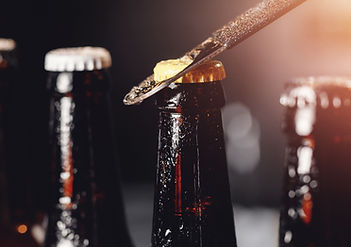
BINGE DRINKING
UNDERSTANDING BINGE DRINKING
WHAT IS BINGE DRINKING?
The National Institute on Alcohol Abuse and Alcoholism (NIAAA) defines binge drinking as a pattern of drinking alcohol that brings blood alcohol concentration (BAC) to 0.08% or higher. For a typical adult, this pattern corresponds to consuming five or more drinks (male), or four or more drinks (female), in about two hours.
Research shows that fewer drinks in the same time frame result in the same BAC in youth: only three drinks for girls and three to five drinks for boys, depending on their age and size.2 In the United States, a "standard drink" is defined as any beverage containing 0.6 fl oz or 14 grams of pure alcohol.
WHY BINGE DRINKING IS DANGEROUS
1. Alcohol Poisoning
-
Drinking large amounts quickly can overwhelm the body, leading to:
-
Vomiting
-
Seizures
-
Slow or irregular breathing
-
Unconsciousness
-
Death
-
2. Risky Behavior
-
Impairs judgment and self-control, increasing the likelihood of:
-
Drunk driving
-
Fights or violence
-
Unprotected sex and STDs
-
Injury or death from accidents or falls
-
3. Short-Term Health Effects
-
Blackouts or memory loss
-
Dehydration
-
Hangovers with nausea, headaches, and fatigue
4. Long-Term Damage (with repeated episodes)
-
Increased risk of:
-
Liver disease
-
Heart problems
-
High blood pressure
-
Addiction
-
Mental health disorders (depression, anxiety)
-
5. Impact on Young People
-
In teens and young adults, binge drinking can harm brain development, academic performance, and increase risk of alcohol dependence later in life.



